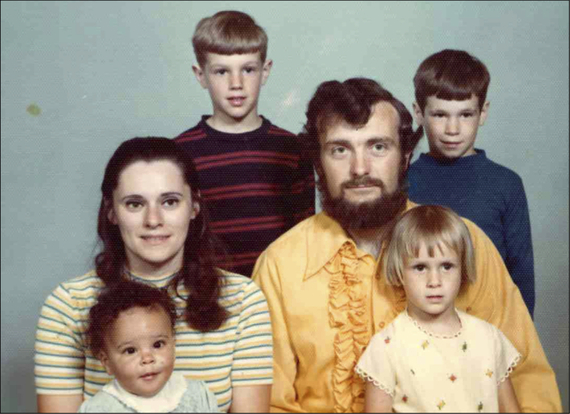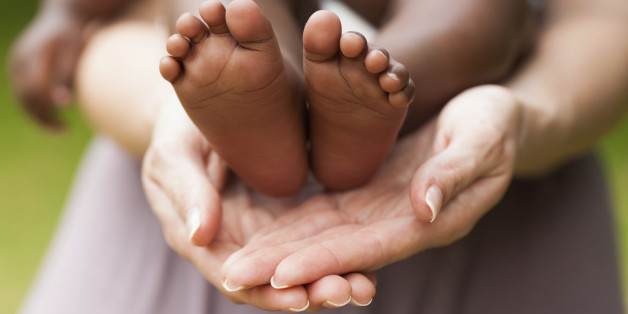[ad_1]
I think about race a lot. As a transracially adopted person and a professional in adoption, it is imperative that I do so. As Black History Month comes to a close, I am both agitated and inspired as I reflect on the intricacies of race, class and culture and the very unique place I occupy within all of it. I am also realizing that the combination of the two opposing energies is exactly what keeps me moving forward.
I am agitated because of the harsh and painful reality we face in this country surrounding differences of race, class and culture. I am agitated because somehow the naïve humanitarian in me believed as time marched on the divisiveness would wane, ushering in less racism, less bias and less pain. I am agitated because I now know what that sick feeling in my stomach was when I was small and an adult treated me differently. I am agitated because I need to spend so much time on high alert paying close attention not only to how I am treated but also to how so many beloved people connected to me are treated — my family, mentees and friends. I am agitated when a long-time friend asks why I do not write about being half-white. But what would I write? Less than 1% of the issues I have faced are about being half-white.
Agitating.
I am agitated because while I watch some of the more blatant and brutal acts of overt racism, I have also had to contend with micro-aggressions — the more subtle biases that often fly under the radar. I experience these because I am a woman, a person of color and an adopted person. Almost always after I deliver a workshop or speech, at least one person will remark “you are so articulate and well-adjusted” and some have added what I am sure many were thinking… “for an adopted person.” I am agitated that with all that we know about healthy identity development for transracially adopted people, there is still not a requirement or standard for training ALL adoptive parents that are adopting outside of their race. Without this, there is room for another generation of transracially adopted children and young people that may struggle with identity formation because their parents were not asked the tough questions and given transformational preparation for becoming a multi-racial family. While some promising programs and practices exist and some parents do get it right, there is not nearly enough being done to educate and train parents about the fundamental differences their conspicuous family will experience.
During this prestigious and poignant month, there have been several mainstream moments that remind me of where we are in this country surrounding differences in race; most notably, Beyoncé’s half-time performance at the Super Bowl. While I watched and enjoyed, the little brown girl in me felt empowered and inspired — not at all agitated. The performance of “Formation” and the video made a very real statement about strength and truth. In the moment, watching her light up that stadium, I soaked it up and I was proud to be a woman of color. I went to sleep with that good, inspired feeling and then boom, the agitation. There was a flurry of true vitriol for the performance, the video and for Beyoncé, simply because she dared to pay homage to the Black Panthers and black lives as the world watched. I wondered how transracially adopted young people and their parents saw this performance.
There have been countless examples of performers using a large venue to capitalize, educate and raise awareness about a pressing social problem without issue. And even worse, artists like Lynyrd Skynyrd, Pantera and Kid Rock, proudly wave the Confederate flag as they perform. So why is it an issue when it is about black lives? Why is it so upsetting to speak truth to power and raise awareness that black lives do indeed matter? There may never be easy answers to these questions. And these questions become more complex within the transracial adoption experience. This makes it imperative that we address race, class and culture openly and honestly when educating and preparing families considering transracial adoption.
I was adopted at a time when most adoptions were closed and there was little discussion about the differences of race, class and culture. The paperwork that accompanied me mentions the presence of a specific kind of birthmark that “could be” an indication that I was of mixed race. There is no “could be” about it… I was brown and my parents certainly knew. There was no training or transformational conversation to be had and my parents were left to their own devices. They did their absolute best and what they could not give me in terms of understanding what it meant to be a person of color, they gave me in strength, grit and integrity. Being adopted into the Dinwoodie family and raised by my mom and dad means that I have no choice but to find inspiration alongside agitation. I was taught not to wallow but to get out and do something. I did not always understand this as a kid but I get it now and I am especially glad for the grit.

The Dinwoodie Family
The grit fuels my inspiration, because while it is an insanely trying time, President Barack Obama is still our president and even while he is soon to move on, he IS our president. I am inspired by leaders like Ta-Nehisi Coates who share such powerfully written life-informed content like his book written as a letter to his young son, “Between the World and Me.” It has been called “required reading” and I could not agree more with that! I am inspired that by having me in their family my nieces and nephews have always seen race differently than their friends that do not have a brown aunt. The adoptive parents that attend my workshops inspire me and they come with open hearts and minds that are tuned in and plugged into what it means to become a mixed-race family.
Agitation plus inspiration means that I do not shy away from the difficult conversations. Agitation plus inspiration means that I can’t look away or ignore the systemic racism bestowed on people of color in this country. It means I protect and defend my identity — all of it. I am a bi-racial, transracial woman. That means I am adopted and proud, a person of color and proud, and white and proud. Yes, this all fits together and I am inspired to explore my identity my way and defend it when I need to.
Agitation plus inspiration means that I keep showing up where I am one of only a few people of color or the only person of color. It also means that when I do show up I have to do so with a delicate balance of force and grace. I can’t just be agitated, I must be inspired to do more, say more and act more on behalf of myself and others like me.
[ad_2]
Source link





















